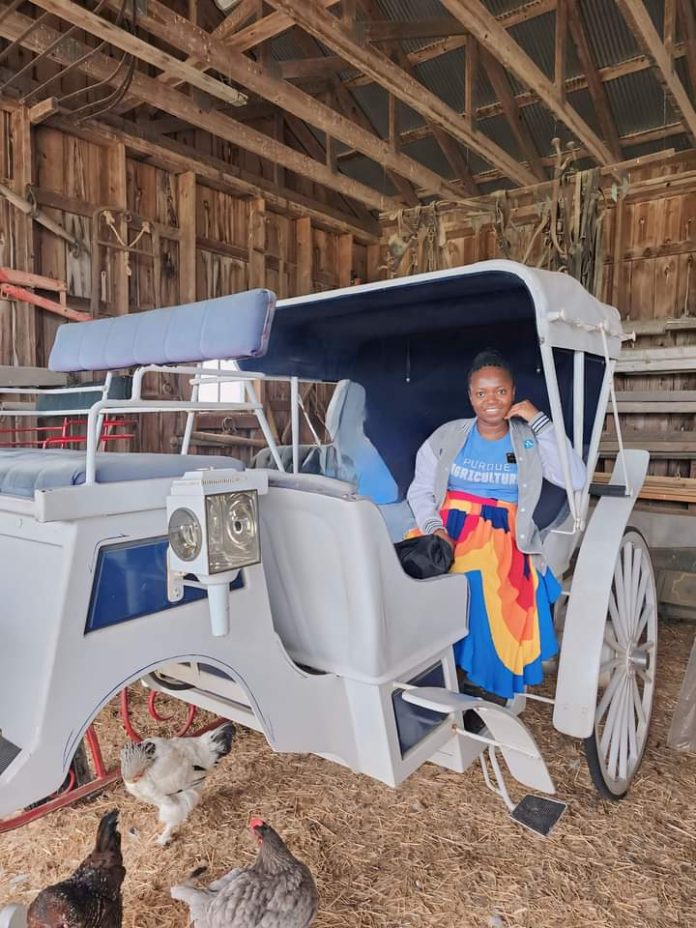Roberta Edu, the visionary CEO of Moppets Baby Food and an outspoken advocate for gender equity, is no stranger to speaking her mind. In a recent candid statement, Edu delivered a stirring critique of patriarchal systems, zeroing in on a seldom-discussed reality: the role some women play in perpetuating the cycle of oppression.
As a self-confessed feminist and a leader in Nigeria’s business landscape, Edu is well-versed in navigating both corporate and societal challenges. However, her latest comments tackle an issue that resonates far beyond boardrooms.
“I can understand patriarchal men,” she began, her tone measured yet firm. “I understand why a man would want to cling to that system. For many men, especially those who feel they’ve failed in life, patriarchy becomes a refuge. It’s their last bastion of power, the one place where they’re told they have value, even if it’s only in subjugating their wives. That, to them, is something to hold onto.”
Yet, Edu’s focus wasn’t solely on men. Instead, she directed her sharpest critique at women who, knowingly or unknowingly, enforce the same patriarchal norms that limit their own gender. Her words carried the weight of lived experience and a deep frustration with a system that often pits women against each other.
“The women who practice patriarchy—those are the ones I find hardest to stand. Their actions aren’t about loving men or upholding tradition; they’re about making sure no other woman enjoys the freedoms they were denied. If they couldn’t break free, they don’t want you to either,” she said.
Edu highlighted the insidious ways this mindset is passed down through generations. According to her, many of the restrictions women face today—whether in marriage, the workplace, or society—are upheld by older women indoctrinating younger ones. “Patriarchy has lasted this long because women, not men, have enforced it. Once a woman suffers under its weight, she often ensures that another woman must, too—sometimes out of bitterness, sometimes out of tradition, but always at a cost.”
She illustrated her point with a scenario familiar to many: women judging and ostracizing others who defy societal expectations. “You’ll hear them say things like, ‘Don’t marry that girl; she won’t respect you.’ It’s not about respect. It’s jealousy. They see a woman who’s bold in ways they couldn’t be, and they can’t stand it. How dare she ask for equality in her marriage? How dare she develop a voice? They didn’t, so why should she?”
Edu’s words were not just a critique but a call to action. She urged women who uphold patriarchal norms to take a step back and reflect on the harm they perpetuate. “To my dear women patriarchy queens,” she said with a mix of exasperation and hope, “count your losses and allow other women to be free. Stop saying, ‘Let her marry first.’ Some of us have married and are still standing tall, fighting to emancipate the gender that society tries to suffocate.”
For Edu, this conversation is personal. As the founder of Moppets Baby Food, a company dedicated to nourishing the next generation, she has built her career on the principles of care and empowerment. She has faced her share of challenges but continues to use her platform to amplify voices often silenced in the name of tradition.
Her remarks have sparked widespread discussion, particularly among women who have experienced similar pressures. Many have expressed gratitude for Edu’s boldness, seeing her as a role model for challenging the status quo.
Edu’s message is clear: the fight for gender equity cannot succeed without confronting the uncomfortable truths about how women themselves, knowingly or unknowingly, contribute to systemic oppression. As she puts it, “It’s time for us to stop holding each other back and start building a world where all women can breathe freely.”
Moppets Baby Food, under her leadership, continues to thrive as a symbol of progress, providing Nigerian infants with the nutrition they need to grow. But for Edu, her mission goes beyond food—it’s about fostering a society where every child, girl or boy, has the opportunity to live free from the constraints of a system that should no longer exist.




